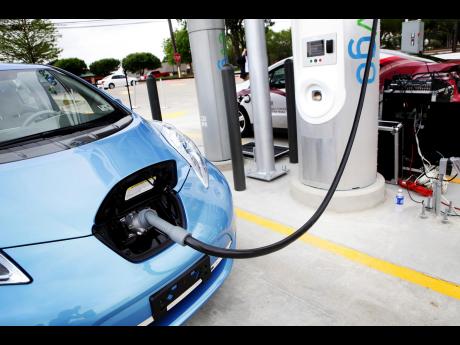More electric PPVs in China
BEIJING (AP):
Chinese authorities have announced plans to boost the number of electric, hybrid, and other alternative fuel-powered vehicles used for public transportation, while sales of such cars for private use have spiked in recent months.
The Transport Ministry announced late last week that officials aimed to add 200,000 buses and 100,000 taxis powered by alternative fuels by 2020. Last year, the country added 15,000 alternative fuel-powered buses to its roads.
Sales of alternative-fuel vehicles have spiked in recent months as China offers tax breaks and other incentives to encourage purchases of electric vehicles and plug-in hybrids, amid a larger anti-pollution fight. Government data show vehicle exhaust makes up 30 per cent of pollution in smoggy Beijing.
increased sales
The China Association of Automobile Manufacturers reported that 5,996 electric vehicles were sold in January and February of this year, 4.2 times the number sold during the same period last year. Another 6,444 hybrid vehicles were sold during those two months, 2.2 times more than the same period last year.
Yale Zhang, managing director of Shanghai-based research group Automotive Foresight, said sales of privately owned electric and plug-in hybrid vehicles are likely to stay hot - at least until the government subsidies begin to lower from 2016 through 2020. In cities such as Beijing, owners of electric vehicles also enjoy a much better chance at winning a licence plate in a highly competitive lottery system.
With the subsidy, a low-end electric vehicle still costs twice that of a comparable petroleum-fuelled model. The lack of charging stations and other infrastructure serving electric vehicles also holds back growth in their use in China.
"This is not an easy issue," Zhang said. "It's all under construction but very slowly."
International automakers are eager to build their alternative fuel vehicle presence in China, the world's biggest auto market, but some companies such as United States-based high-end manufacturer Tesla have struggled so far.

